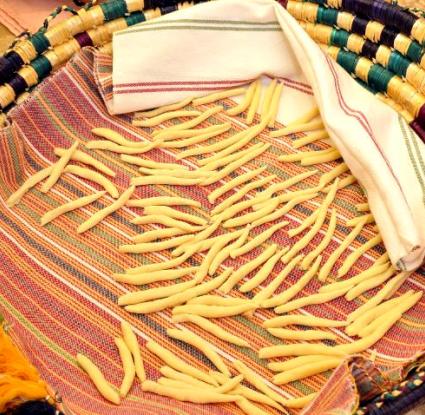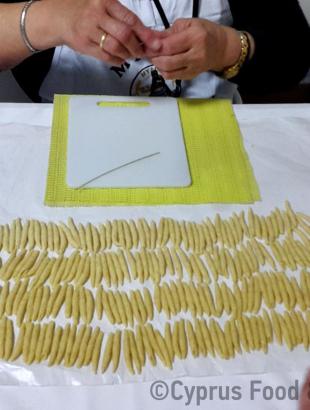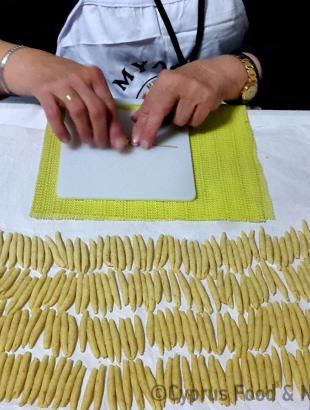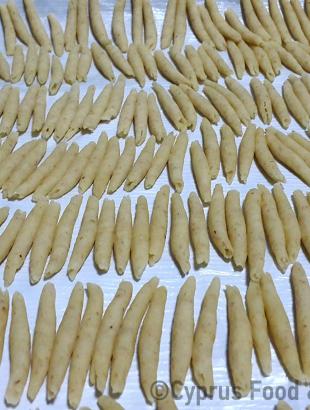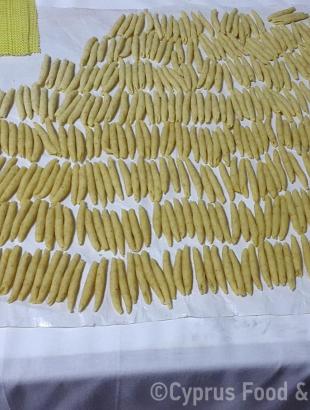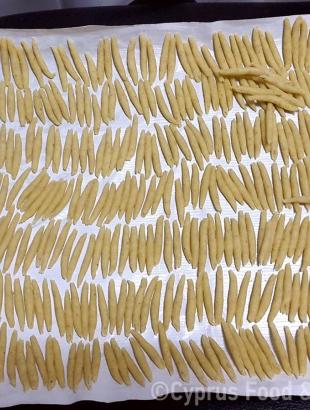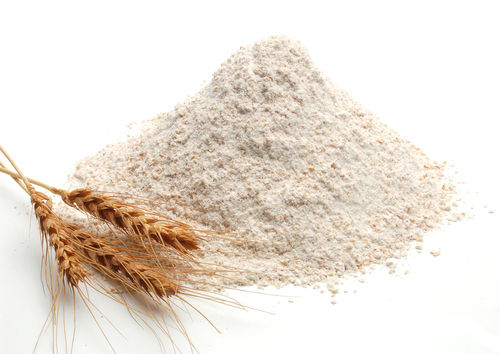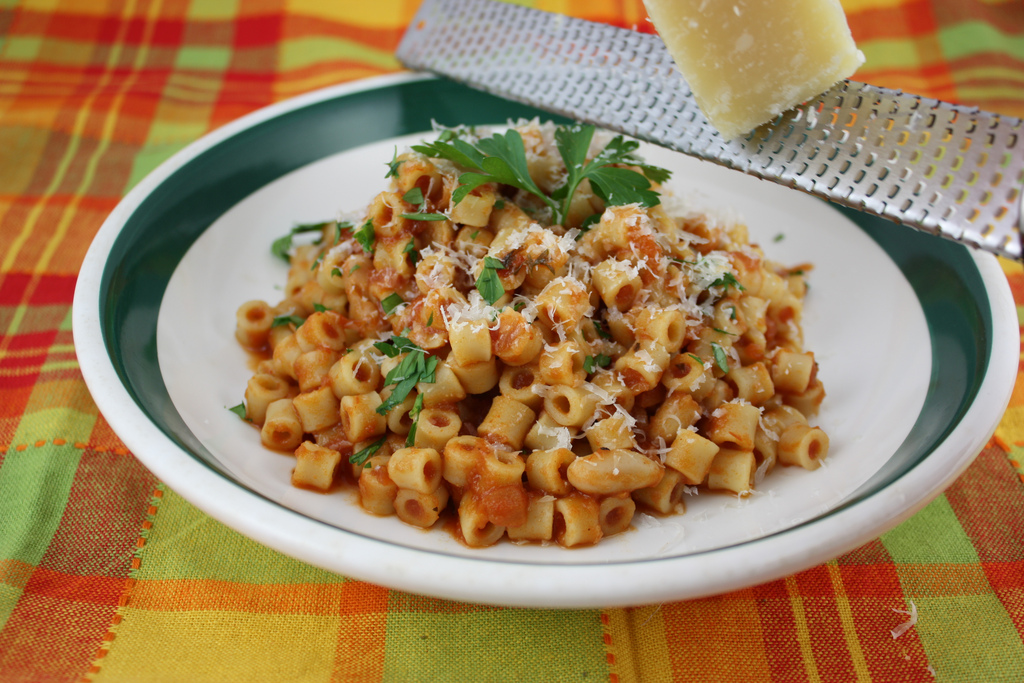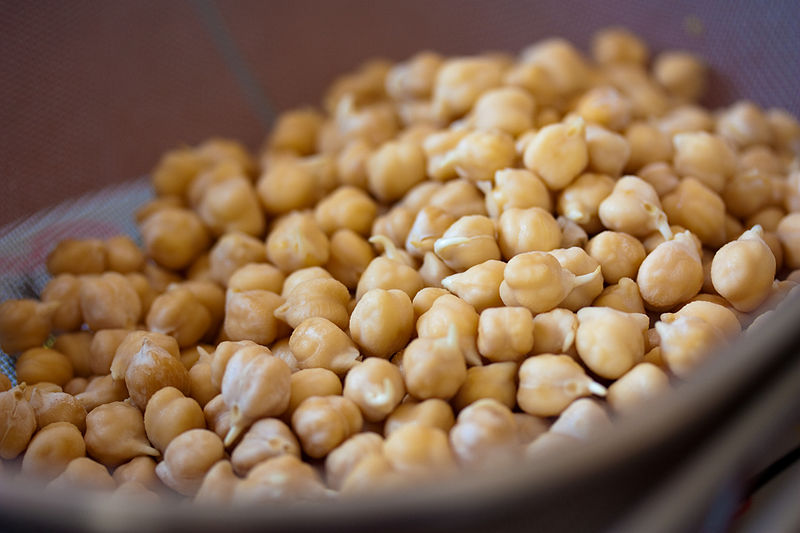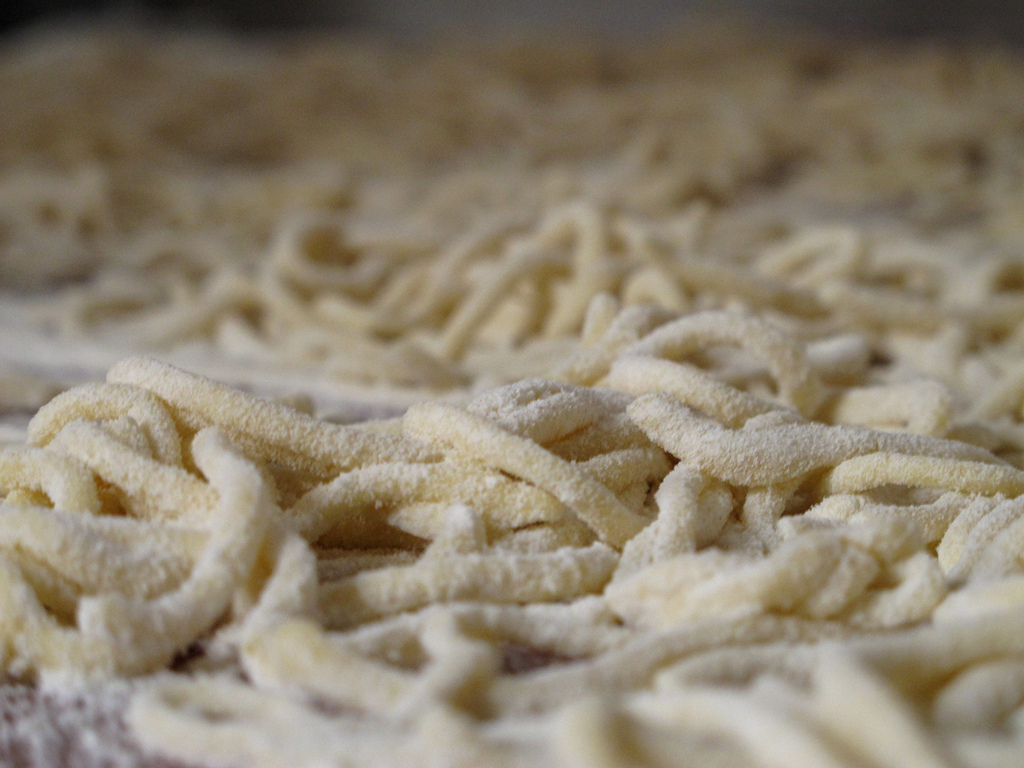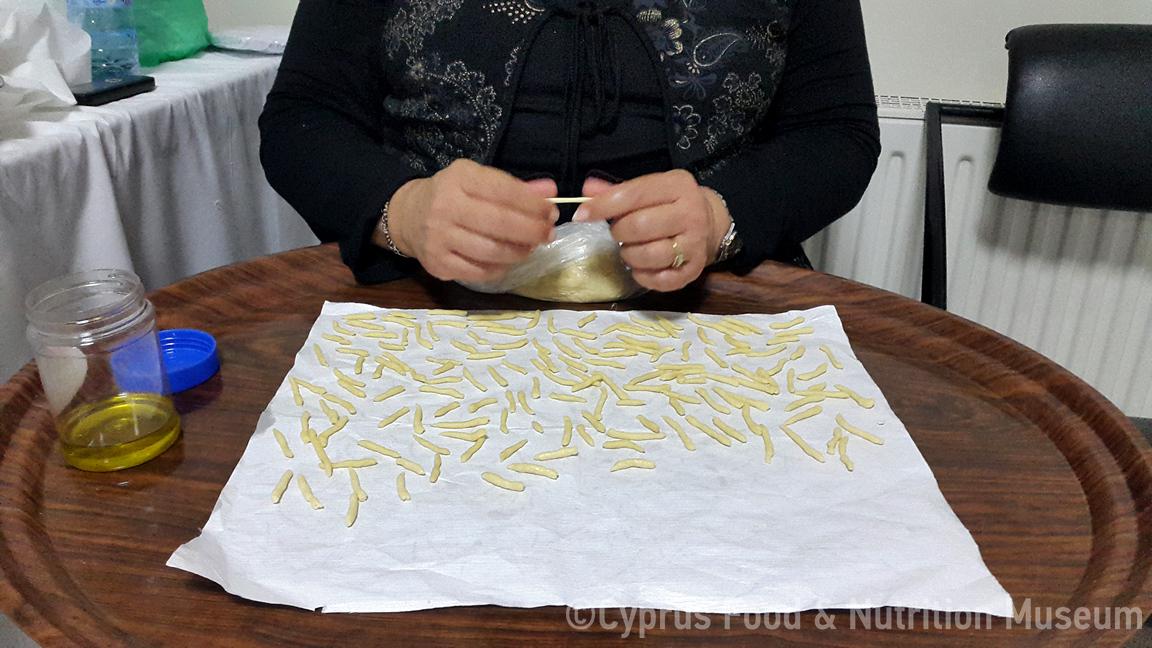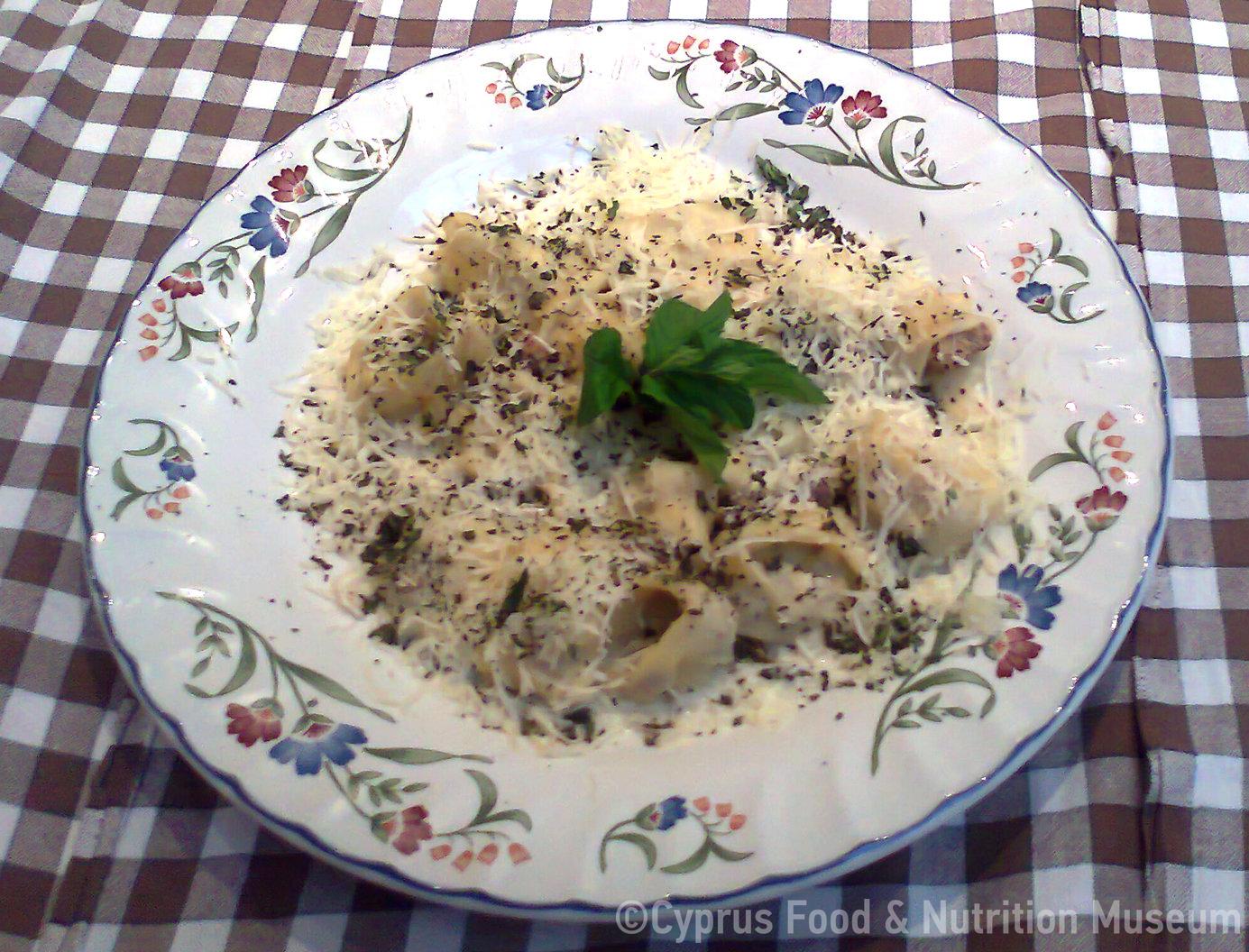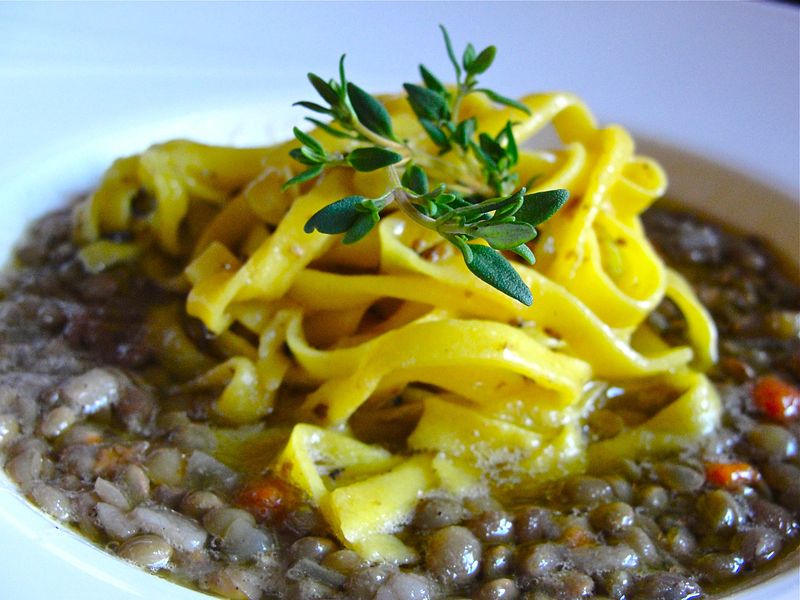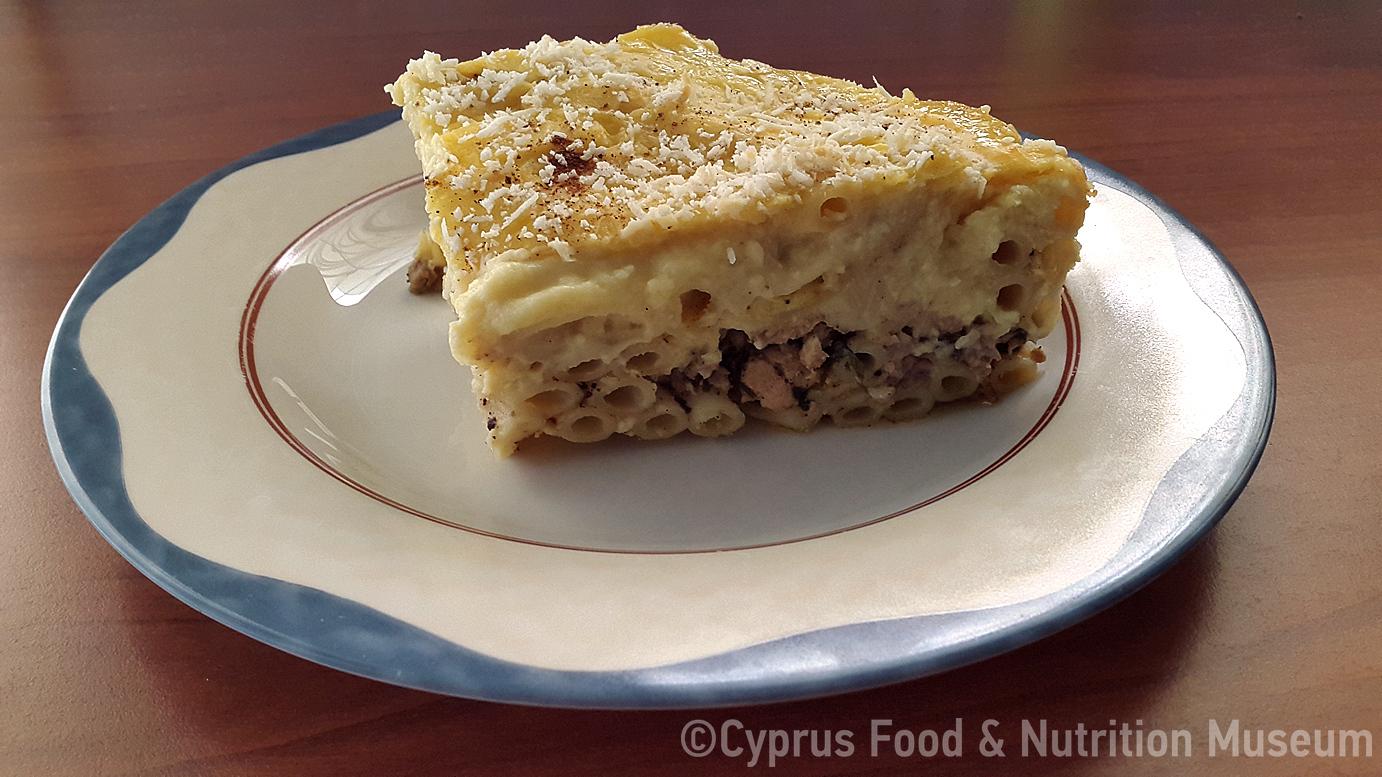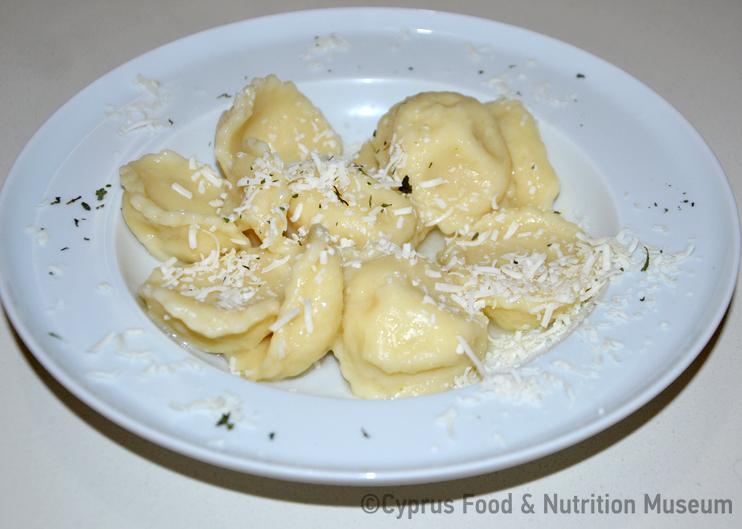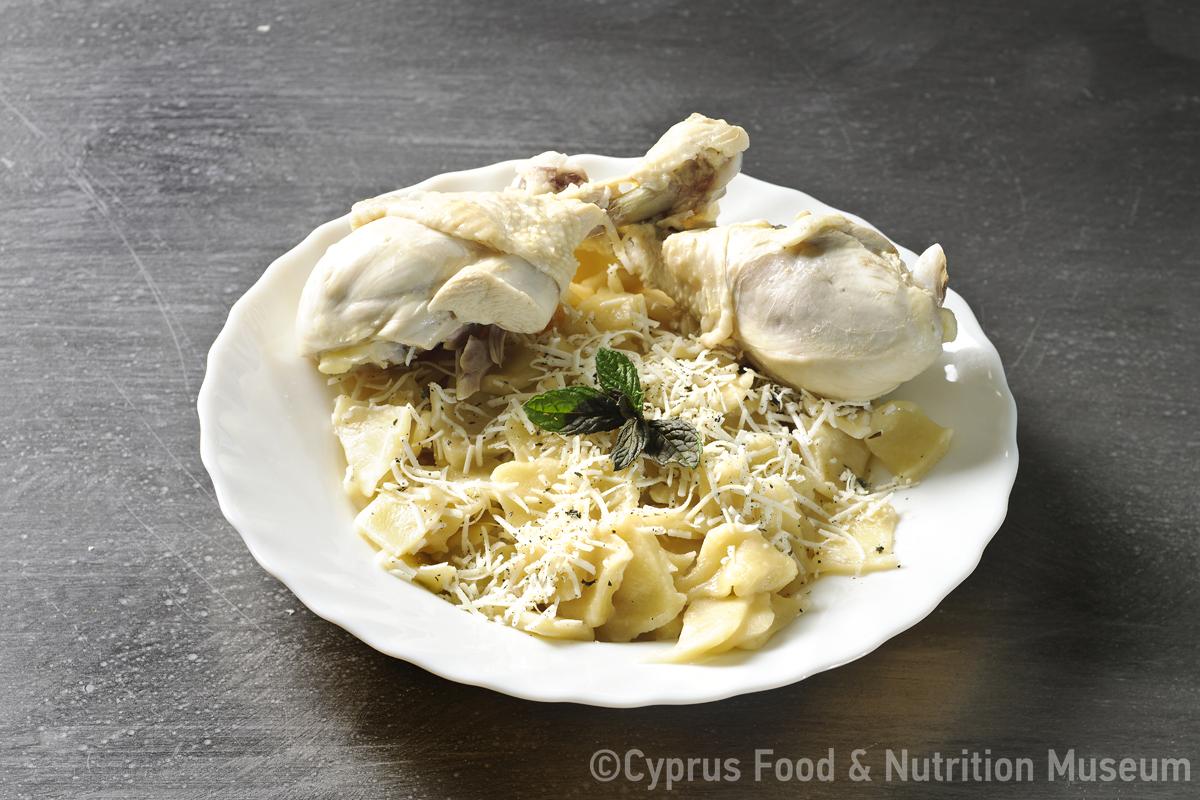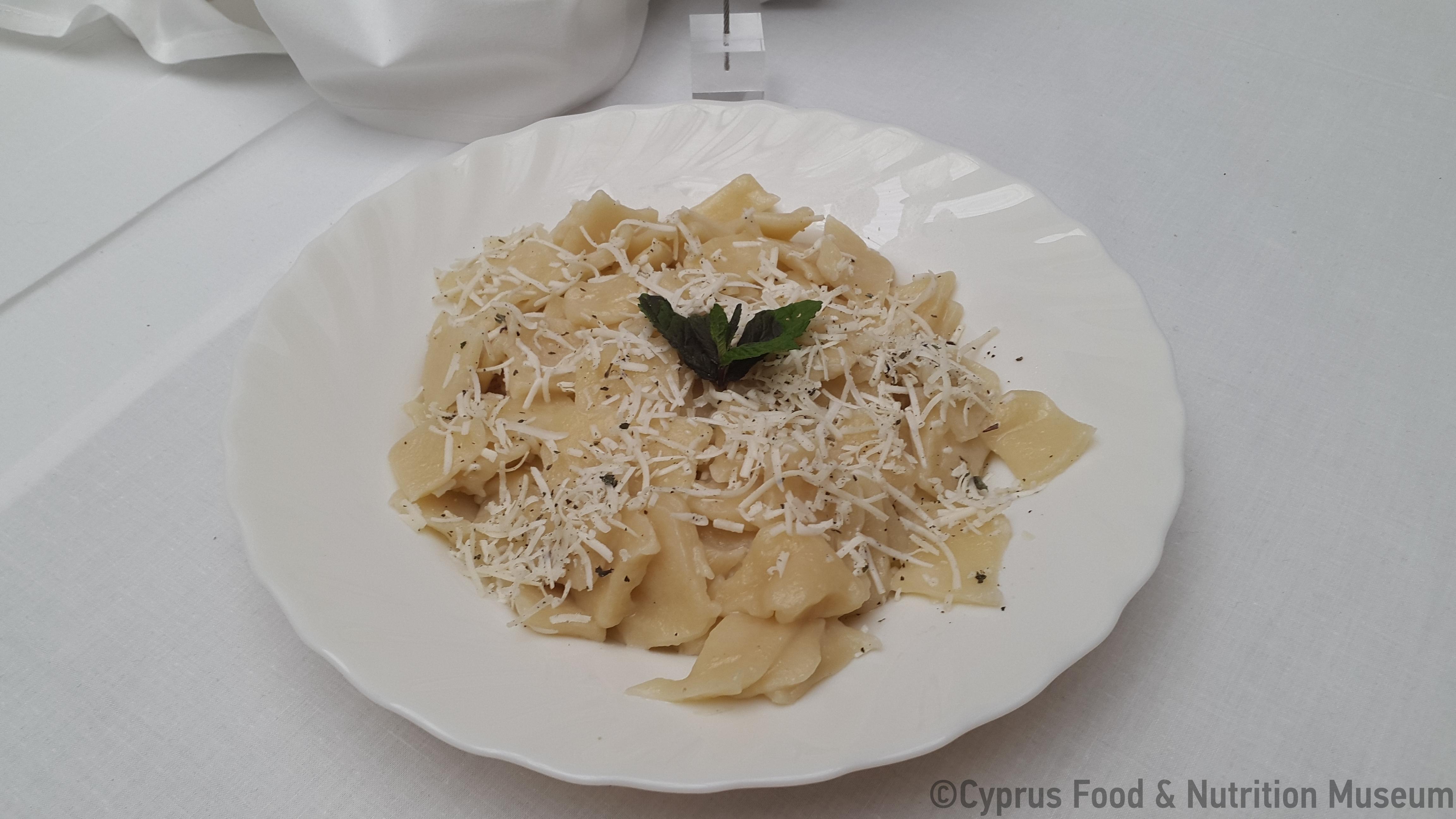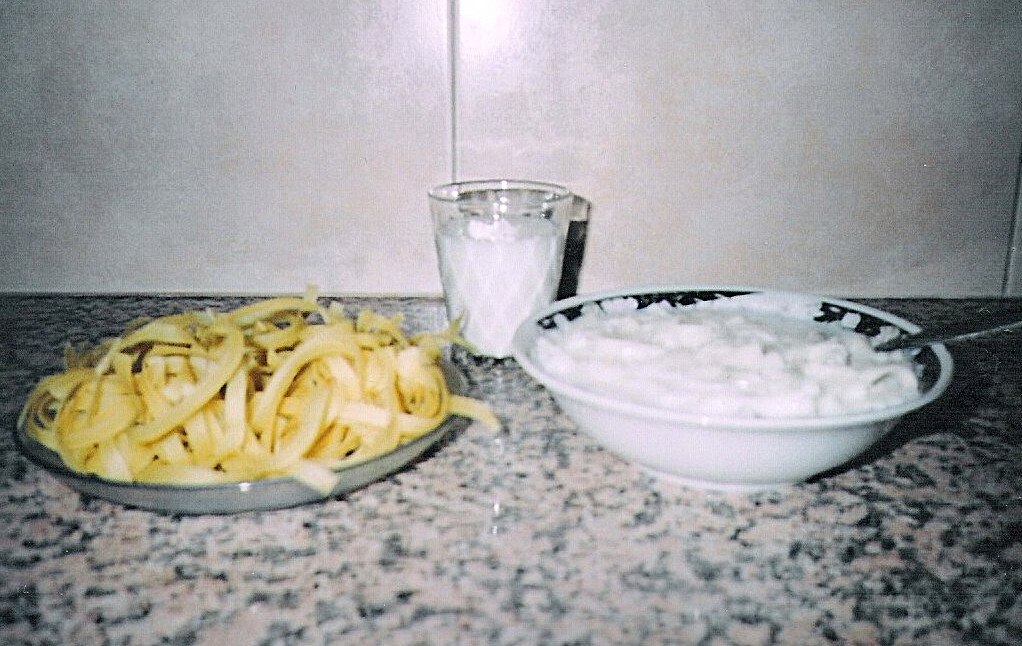Sklinitžin is a thin reed-like tip of rush (Juncus Sp.) and in this recipe it is used to make homemade pasta (macaroni) with a hole in the middle.
Name - Recipe
Homemade pasta with a hole in the middle, created by using a thin rush sprig.
sklinitžin=rush (Juncus Sp.) inedible but extensively used in Cyprus, in earlier times, in weaving mats mainly syrizes, baskets like zembylia, talarka (baskets used to drain the cheese curd when making anari/halloumi/flaouna cheese), froukalia (small sweepers) and others. This is due to the fact that their long, cylindrical, thin, flexible but also solid stems were ideal for weaving after having been dried. In this case, it is used to make homemade pasta.
6 cups of fine semolina
2 drops of lemon juice
1 tablespoon salt
2 tablespoons olive oil
2 glasses of water ( ratio 1:3 with semolina)
Rub with your fingertips the olive oil with the semolina, the lemon juice and salt until small lumps are formed (salt prevents the dough from watering down). Add water, as much as needed, and knead until you get a firm dough. Let the dough rest for 2-3 hours. Form the dough into strips and cut it into small chickpea sized pieces. Take one piece and pass it through the sklinitžin and shape it with your palm to form a macaroni-like shape. Remove the sklinitz̆in and place the macaroni in a tsestos [weaved round tray) to dry for 2-3 days. Follow the same procedure for the rest of the dough. Boil the macaroni for about 10 minutes in water or broth and serve with trimman (grated halloumi or dry anari cheese). (Ministry of Agriculture 2009, 'For the Farmer: Basketry in Cyprus", 451).
Boiling.
Functional and symbolic role
This homemade macaroni dish was traditionally consumed on special occasions, such as engagements and weddings, as well as during the cheesefare week (the week before Lent).
Additional information and bibliography
Ministry of Agriculture, Natural Resources and Environment (2009), «Για την Αγρότισσα: Η καλαθοπλεκτική στην Κύπρο» (For the Farmer: Basketry in Cyprus), Αγρότης (Farmer) 67, 451.
Varvara Yangou, Argyro Xenophontos

